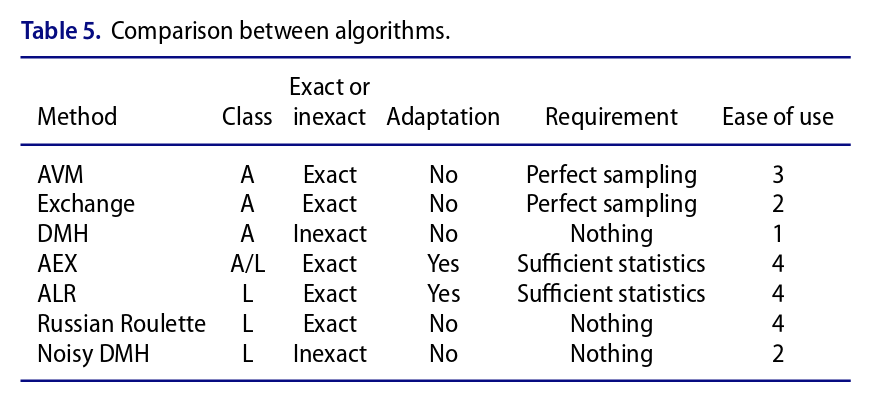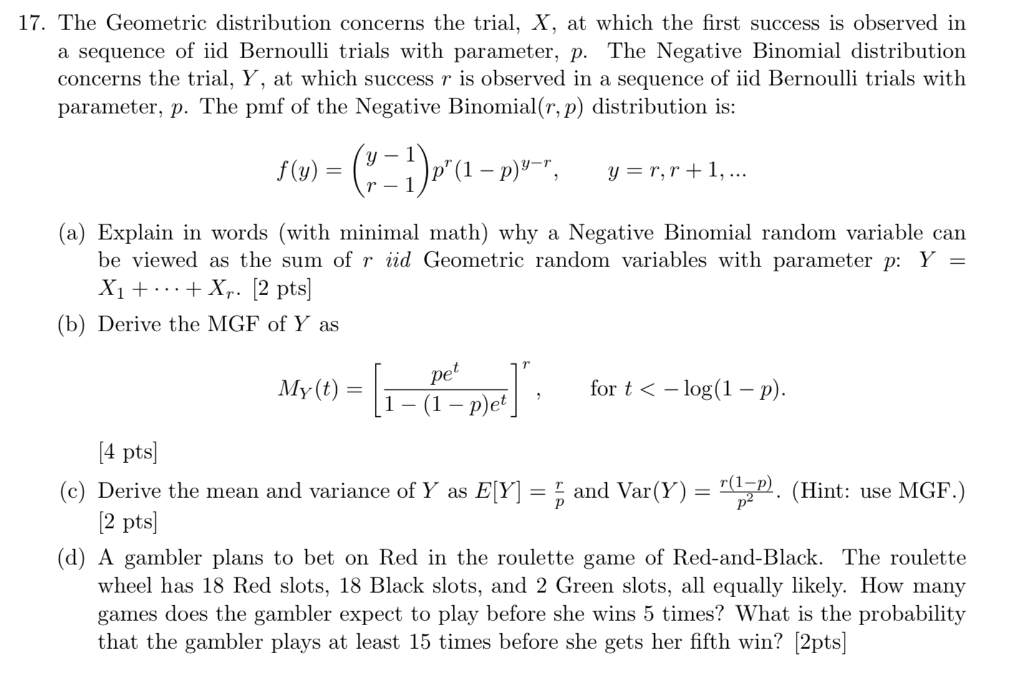
Understanding games of chance such as card and dice games as well as roulette. It is our purpose here to briefly discuss the probabilities associated with such games of chance. Early mathematicians such as Fermat, Pascal, Laplace, Bernoulli, and Gauss devoted some of their time to understanding games of chance in terms of the.

- Portrait of Daniel Bernoulli (1700-1782) Wikipedia Image. Bernoulli introduced his problem in a journal of the Imperial Academy of Science of Saint Petersburg, after which it came to be known as the Saint Petersburg Paradox. And like many good paradoxes it involves a game of chance. It’s a great game — you’re guaranteed to win money.
- Details The Bernoulli distribution with prob = p has density p (x) = p x (1 − p) 1 − x for x = 0 o r 1. If an element of x is not 0 or 1, the result of dbern is zero, without a warning. P (x) is computed using Loader's algorithm, see the reference below.
- Example 1-Suppose David goes to a casino and plays a single game by spinning in a roulette wheel so the. Weak Law is also known as Khinchin’s law or Bernoulli’s theorem states that if the.
Similar Questions

probability, mathematics, statistics
Consider a Bernoulli process, with arrival probability at each time slot equal to p=1/3 . An observer arrives at time slot 10 and sees that no arrival took place in that slot. A passerby informs the observer that there was exactly
probability
Consider a Bernoulli process with parameter p=1/3. Let T1 be the time of the first success and let T1+T2 be the time of the second success. We are told that the results of the two slots that follow the first success are failures,
statistics
In the game of roulette, a wheel consists of 38 slots numbered 0, 00, 1, 2,..., 36. To play the game, a metal ball is spun around the wheel and is allowed to fall into one of the numbered slots. If the number of the
Probability
Consider a Bernoulli process, with arrival probability at each time slot equal to p=1/3. An observer arrives at time slot 10 and sees that no arrival took place in that slot. A passerby informs the observer that there was exactly


Roulette Bernoulli Game
Roulette Bernoulli Equation
For our next problem, let us calculate the probabilty of getting all 38 numbers after spinning a roulette wheel 152 times. (An American roulette wheel has the numbers 1 through 36 plus zero and double zero.) STEP 1 which equals 1.34 × 10240 Then in steps 2, 3, 4 and 5, we will determine how many of those 38152 spins, will contain all 38 numbers. STEP 2 37152 = 2.33 × 10238 36152 = 3.61 × 10236 35152 = 4.99 × 10234 34152 = 6.09 × 10232 33152 = 6.52 × 10230 32152 = 6.06 × 10228 31152 = 4.86 × 10226 30152 = 3.33 × 10224 29152 = 1.93 × 10222 28152 = 9.29 × 10219 27152 = 3.69 × 10217 26152 = 1.19 × 10215 25152 = 3.07 × 10212 24152 = 6.20 × 10209 23152 = 9.61 × 10206 22152 = 1.12 × 10204 21152 = 9.49 × 10200 20152 = 5.71 × 10197 19152 = 2.35 × 10194 18152 = 6.33 × 10190 17152 = 1.07 × 10187 16152 = 1.06 × 10183 15152 = 5.83 × 10178 14152 = 1.63 × 10174 13152 = 2.09 × 10169 12152 = 1.09 × 10164 11152 = 1.96 × 10158 10152 = 1.00 × 10152 9152 = 1.11 × 10145 8152 = 1.86 × 10137 7152 = 2.85 × 10128 6152 = 1.90 × 10118 5152 = 1.75 × 10106 4152 = 3.26 × 1091 3152 = 3.33 × 1072 2152 = 5.71 × 1045 1152 = 1 STEP 3 37 C 38 = 37 36 C 38 = 703 35 C 38 = 8,436 34 C 38 = 73,815 33 C 38 = 501,942 32 C 38 = 2,760,681 31 C 38 = 12,620,256 30 C 38 = 48,903,492 29 C 38 = 163,011,640 28 C 38 = 472,733,756 27 C 38 = 1,203,322,288 26 C 38 = 2,707,475,148 25 C 38 = 5,414,950,296 24 C 38 = 9,669,554,100 23 C 38 = 15,471,286,560 22 C 38 = 22,239,974,430 21 C 38 = 28,781,143,380 20 C 38 = 33,578,000,610 19 C 38 = 35,345,263,800 18 C 38 = 33,578,000,610 17 C 38 = 28,781,143,380 16 C 38 = 22,239,974,430 15 C 38 = 15,471,286,560 14 C 38 = 9,669,554,100 13 C 38 = 5,414,950,296 12 C 38 = 2,707,475,148 11 C 38 = 1,203,322,288 10 C 38 = 472,733,756 9 C 38 = 16,3011,640 8 C 38 = 48,903,492 7 C 38 = 12,620,256 6 C 38 = 2,760,681 5 C 38 = 501,942 4 C 38 = 73,815 3 C 38 = 8,436 2 C 38 = 703 1 C 38 = 38 Basically, this is saying that 37 objects can be chosen from a set of 38 in 37 ways 36 objects can be chosen from a set of 38 in 703 ways ....................................................................................... 2 objects can be chosen from a set of 38 in 703 ways STEP 4 1.34 × 10240 × 1 = 1.34 × 10240 2.33 × 10238 × 37 = 8.84 × 10239 and so on
|